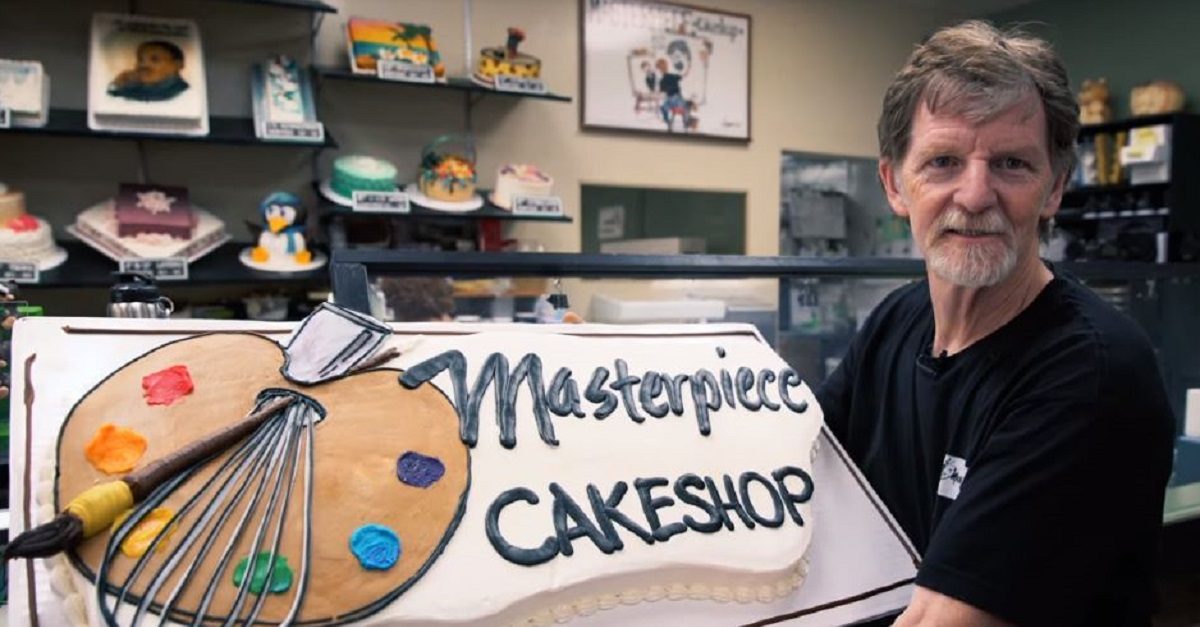
A Colorado baker who refused to bake a wedding cake for a gay couple and was vindicated with a partial victory in 2018 at the Supreme Court of the United States now finds himself back in court yet again — this time for refusing to bake a birthday cake for a transgender woman.
Attorney Autumn Scardina ordered a birthday cake from Masterpiece Cakeshop in 2017 on the same day the Supreme Court announced it would hear owner Jack Phillips’ appeal following losses at the federal and circuit court levels. Scardina requested a cake that was intended to celebrate her gender transition. The inside of the cake was to be pink; the outer layer was to be blue.
In both cases, Phillips claimed that being forced to bake the cakes would conflict with his closely held religious beliefs.
The original wedding cake case pitted the legal issues of religious freedom against sexual orientation discrimination. The issues occurred when a state commission accused Phillips of discriminating against gay people in violation of Colorado’s public accommodations law. Phillips argued that this was not the case; rather, he was simply refusing to actively participate in a gay wedding because it violated his Christian values.
Throughout the litigation, Phillips maintained that if the cake was for a different, non-religious occasion, he would have accommodated the couple. During Monday’s virtual hearing, Scardina said she placed her order with Masterpiece and followed through with legal action to test the veracity of Phillips’ claim.
Asked if her lawsuit was a “setup” during Monday’s virtual hearing, Scardina said it was actually “more of calling someone’s bluff,” according to a report from ABC News.
Phillips’ attorney Sean Gates said his client declined Scardina’s order because he disagreed with the message the cake would send regarding gender, not because he wanted to discriminate against her status as a transgender woman.
“The message would be that he agrees that a gender transition is something to be celebrated,” Gates said, according to the Associated Press.
The attorney also reportedly emphasized that Phillips declined other orders the client believed contained messages with which he disagreed, including at least one Halloween-themed item.
Phillips accused Scardina of targeting him and his business because of the media attention he received when he refused to bake the wedding cake, a sentiment shared by Kristen Waggoner, general counsel for the Alliance Defending Freedom and Phillips’ attorney in the first case.
“Jack is being targeted for his religious beliefs,” Waggoner said in a statement to Fox News. “His opponents are weaponizing the law to punish and destroy him because he won’t create expression that violates his Christian faith. They want to make the law an arm of cancel culture.”
The Supreme Court’s 2018 decision in Phillips’ favor was narrow in scope. It focused largely on the state’s mishandling of the matter. The justices keyed in on the state’s demonstrated hostility towards Phillips’ religious beliefs — which ultimately prevented him from having a fair hearing.
[image via Daily Signal screengrab]